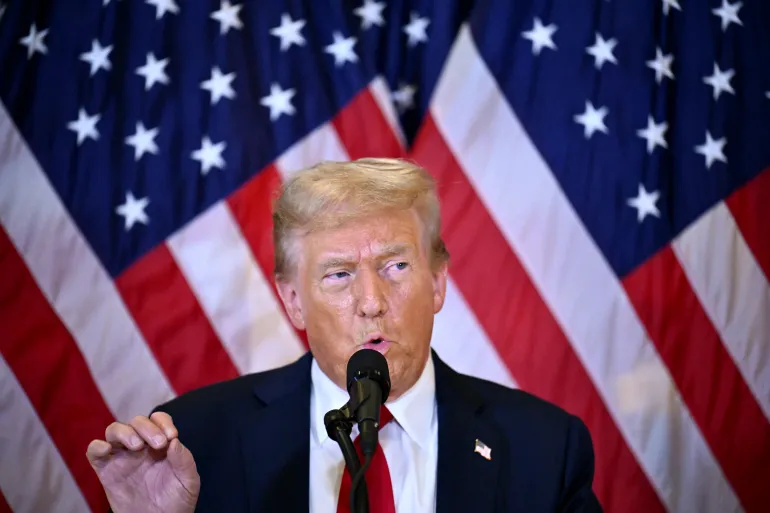U.S. President-elect Donald Trump’s legal team is presenting a new argument in their bid to overturn his hush money conviction. In a letter to Manhattan Judge Juan M. Merchan, Trump’s attorneys have claimed the historic verdict was influenced by juror misconduct.
“The jury in this case was not anywhere near fair and impartial,” attorneys Todd Blanche and Emil Bove wrote in the letter, parts of which were made public Tuesday (December 17).
While the specific details of the allegations were redacted, Trump’s lawyers said that they “evidence of grave juror misconduct during the trial.”
However, prosecutors have dismissed the claims made in the defense filing as “unsworn, unsupported” hearsay, asserting that they are part of a final attempt to erode public confidence in the case.
The specific details were made public one day after Merchan denied Trump’s request to have his hush money conviction dismissed, ruling that presidential immunity did not apply in this case.
The judge did not address the other arguments presented by Trump’s legal team in an effort to have the case dismissed.
Partially redacted responses in letter to Merchan
Trump spokesperson Steven Cheung called the hush money case a “witch hunt,” calling on the judge to dismiss the case immediately.
“Partisan political motivations infected nearly every aspect of this Witch Hunt, including the jury room,” Cheung said. He also accused Manhattan District Attorney Alvin Bragg and Merchan of allowing “their own personal political biases to fuel this charade” and said “they should be ashamed of their inaction in refusing to investigate this serious matter, and allowing the grievous misconduct to occur.”
“It is clear that there is more information that should come to light regarding misconduct, and those with knowledge of such information should come forward and do what is right,” Cheung said.
Merchan addresses juror misconduct claims
In his ruling Monday evening, Merchan said that the allegations “should be thoroughly investigated,” but only as part of a sworn affidavit.
“This Court is prohibited from deciding such claims on the basis of mere hearsay and conjecture,” Merchan wrote. “Unless and until a properly filed claim … is submitted, this Court cannot allow the public filing of unsworn, and admittedly contested statements.”
“To do so would threaten the safety of the jurors and violate the agreed upon Order Regulating Disclosure of Juror Information,” he added.





